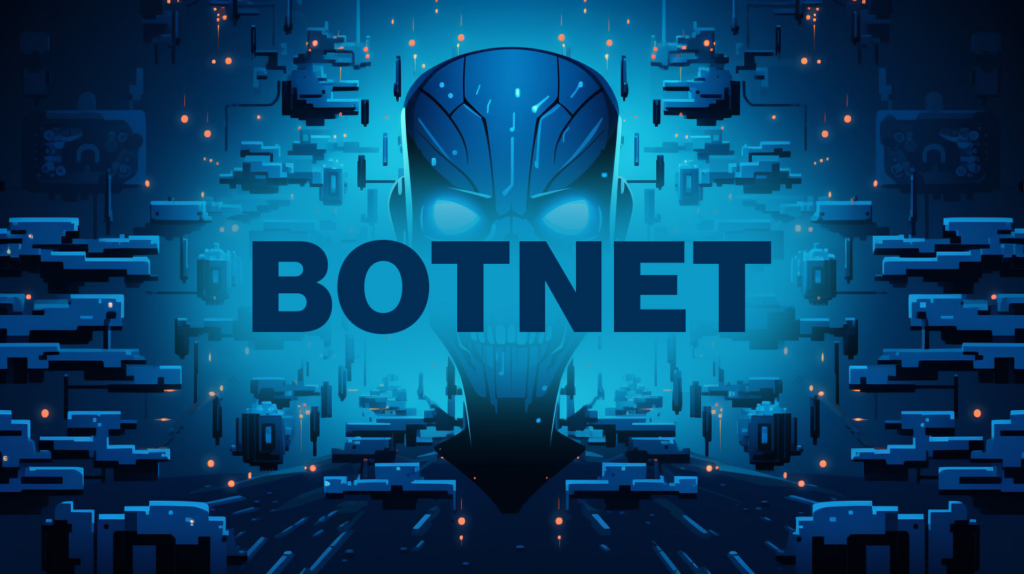Updated 18 Sept: Harris-Walz campaign targeted; Chinese botnet attacking IoT devices
TechFyle’s CyberCrime Round-up summarizes stories the world over. Cybersecurity presents challenges for individuals, businesses, law enforcement and the private sector alike. From encrypted networks used by criminals to botnets run by obscure companies, the roundup highlights the ups and downs in cybercrime and security.
What’s Happening & Why This Matters
Encrypted Phone Network Takedown
Authorities across Europe, led by Europol, have successfully dismantled Ghost, an encrypted phone network popular among criminals. Ghost had been providing thousands of criminals with encrypted phones that allowed them to communicate securely. The system even included a self-erasing message feature, which made it difficult for law enforcement to retrieve data during forensic investigations. Law enforcement managed to hijack the phone update process, gaining access to the encrypted communications and leading to the arrest of 51 people. This operation, called Operation Kraken, focused on organized crime groups, and the effort is expected to result in more arrests as investigations continue.
US vs. Chinese Botnet
The US and UK cybersecurity agencies have accused the Chinese company Integrity Technology Group of running a large botnet consisting of infected Linux devices, including routers and webcams. This botnet, known as Flax Typhoon, allegedly allowed Chinese hackers to conduct surveillance on various targets, including corporations and government agencies. The FBI, in collaboration with other national security organizations, has dismantled the botnet. However, experts warn that hackers will likely create new networks to continue their activities. This incident highlights ongoing concerns about foreign interference in US infrastructure and the growing risks posed by IoT devices.
Election Misinformation Worries

As the 2024 US presidential election approaches, a new study by Adobe has revealed that 94% of Americans are concerned about election misinformation. The rise of AI-generated deepfakes has made it increasingly difficult for people to determine what is real and what is fake, and many fear that these tools will be used to interfere with the election. More than half of the respondents said they have been fooled by fake content, with many choosing to leave social media platforms because of the increasing prevalence of misinformation.
End-to-End Encryption for RCS Messaging
The introduction of Rich Communication Services (RCS) messaging on iPhones with iOS 18 marks a significant step in messaging security. Although RCS messages are encrypted in transit, they are not yet protected with end-to-end encryption between iOS and Android users. Google and other tech companies are working on adding this feature, but it poses technical challenges. End-to-end encryption would provide stronger protections against scams and fraud.

California Takes Action Against Deepfakes
In response to growing concerns about AI-generated deepfakes influencing elections, California has passed several laws aimed at curbing the spread of misleading AI content. One new law expands an existing ban on distributing fake AI election materials within 120 days of an election, while another mandates that political campaigns disclose when they use AI in their advertisements. These laws set a national standard for AI-related content in political campaigns, although some fear the new regulations could stifle free speech.
Chinese Company Allegedly Behind Botnet Running IoT Devices

The U.S. government has accused a Chinese IT company, Integrity Technology Group, of running a vast botnet composed of compromised IoT devices. According to the FBI, NSA, and UK’s National Cyber Security Centre, the botnet consisted of devices like routers, storage drives, web cameras, and video recorders infected with malware, including the notorious Mirai strain. The infected devices were reportedly used to obscure Chinese hackers’ activities. FBI Director Christopher Wray revealed during the Aspen Cyber Summit that this botnet had been in operation since 2021 and had infected over 260,000 devices as of June, with the potential total reaching up to 1.2 million. In a recent takedown, the FBI gained control of the botnet’s infrastructure and neutralized the Mirai malware on affected devices.
Although U.S. agencies were able to disrupt these operations temporarily, Wray warned that Chinese hackers would continue their efforts to target organizations, either through direct attacks or proxies. The FBI’s dismantling of this infrastructure marks a critical step in combating botnet-driven cyber threats, but the ongoing threat remains ever-present.
Russian Disinformation Targets Kamala Harris in 2024 U.S. Elections

Russian disinformation campaigns have shifted focus in the U.S. 2024 presidential elections, targeting Vice President Kamala Harris and her running mate, Minnesota Governor Tim Walz. According to a report from Microsoft’s Threat Analysis Center (MTAC), Russian actors—particularly Storm-1516 and Storm-1679—pivoted from previous attacks on President Joe Biden to spread fake conspiracy theories about Harris. Recent disinformation included manipulated videos falsely showing Harris supporters attacking a Trump rally attendee and fabricating an incident where Harris was accused of hitting a child with her car. These fake narratives were distributed across social platforms, including X (formerly Twitter) and Telegram, amassing millions of views. MTAC noted that Russian intelligence had strategically pivoted to attack the Democratic candidates in the final stages of the election campaign, a pattern seen in previous U.S. elections.
Beyond Kamala Harris, other disinformation campaigns have also targeted Republican candidates, with Chinese influence operations spreading content critical of Donald Trump. As these campaigns intensify, the threat to democratic processes from foreign cyber actors becomes more acute.
TF Summary: What’s Next?
Law enforcement’s recent success in disrupting encrypted phone networks and botnets indicates authorities becoming more adept at tackling certain types of criminal activity. However, evolving criminal tactics, especially with advancements in encryption and AI, will continue to challenge security agencies.
The crackdown on Ghost and botnets is just the beginning, with more coordinated efforts expected in the future. Meanwhile, the rise of election misinformation and deepfakes will push both government and social platforms to develop stronger safeguards, particularly as major internationl elections approach (United States, India, etc.) .
The expansion of AI-driven technology only amplifies the need for extensive regulatory frameworks and more public awareness to combat cyber threats effectively.
— Text-to-Speech (TTS) provided by gspeech


